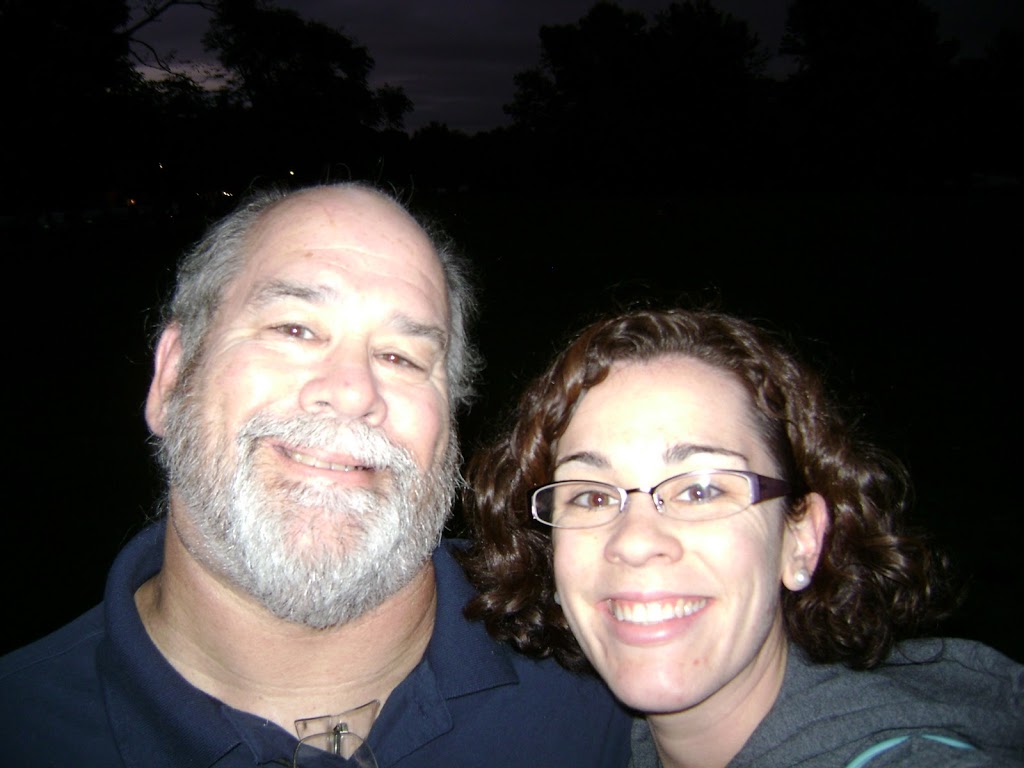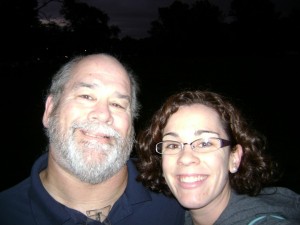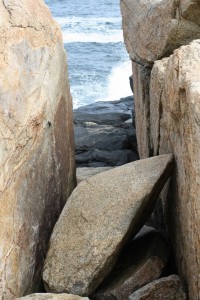Here is my Trinity Sunday sermon from St. Paul’s in Natick. I had the interesting challenge of meditating on the Trinity while also remaining mindful of the fact that it was Father’s Day. Here is what resulted:
It took 16 hours to drive home from seminary three weeks ago. I arrived at my dad’s house at 11PM and went straight up to my childhood bedroom and fell into my bed… which had been made with fresh sheets and had extra blankets on the end, just how I like it. // When I awoke the next morning I came downstairs to find all of the boxes from my car stacked neatly at the bottom of the stairs. -there were a lot of boxes- I went to the kitchen to make some breakfast and found my favorite yogurt and a new box of my regular cereal. // My dad doesn’t eat yogurt, and he sure doesn’t like paying for name brand cereal. // My dad can tell some of the most long winded, detailed stories about random events of New England history you’ve ever heard. But when it comes to talking about his feelings he is a man of few words. // // //
In the words of Brother Tobias Stanislas: Trinity Sunday is the one day of the church year when we specifically “focus on God’s being rather than God’s doing.” // It is important to consider, however, that it is through God’s doing that we learn about God’s being. After all, isn’t the old saying: “actions speak louder than words?”//
The wonder of Trinity Sunday is encompassed in the breadth of the readings we experienced this morning. It is through those readings that we learn the Triune nature of the God we worship and of the majesty, power, love, and potential that is gifted to us through God’s multidimensional essence. // The task of Trinitarian theology according to Augustine is “to manifest what is expressly revealed in the Scripture concerning God the Father, Son, and Holy Ghost; so as that we may duly believe in him, yield obedience unto him, enjoy communion with him, walk in his love and fear, and so come as length to be blessed with him for evermore.” // In other words, the task of trinitarian theology is to learn about God through God’s actions and words in the bible so that we can fully love God and walk on the path to which God calls us. //
When we hear the creation story from Genesis, as we did today, it is like coming home. We all know this story. It is written on our hearts… and if you’ve ever attended the Easter Vigil at St. Paul’s, then you probably want to say “good, good, very very good” every time God creates something. // When a story becomes comfortable we anticipate what is coming next, and that anticipation causes us to stop listening with our full selves because we think we already know all that is happening. // It is like reading a story book to a child each night before bed. If the child has a favorite book, and has heard it enough times, she will say to you, “Daddy, let me read it.” And even though she is too young to read, she will take the book and tell you the story from memory; guided by the images, her retelling of this favorite tale will catch most of the major points but you notice the text and you can see when she is leaving out bits of the tale. // It is for this reason, I want us to take some time together to really listen to this creation story. To hear all of the profundity that is encompassed in this timeless tale, and to consider what special message it has for us on Trinity Sunday, of all days.
As I said before, it is through God’s doing that we learn about God’s being… and God sure is doing a LOT in that first reading from Genesis. // As we look at this story with fresh eyes let’s consider those things which have become the pieces we leave out when we are retelling the story. // It is often in the little actions that the greatest character traits of a person are revealed. //
In the second verse of this lesson from Genesis a “wind from God” sweeps over the deep. Wind is important in the bible. Just last Sunday we heard about the “violent wind” of Pentecost sweeping through the house and gifting the disciples with the ability to speak and hear in multiple languages. And one reason that wind is chosen as a metaphor is because it is an image we can relate to. // We have all experienced wind. A soft breeze on a summer day, a bitter whipping wind in the throws of winter, and just two weeks ago our neighbors out by Springfield felt the terror and destruction of tornadoes winds. // Wind is a powerful image because it is invisible yet has the ability to disrupt everything in its path. // It can be gentle or forceful. Welcomed or feared. // Wind is a perfect image for the Holy Spirit essence of God because the Holy Spirit is described as God’s essence at work in the world around us.
That’s right, in the first two verses of the bible, those that we heard in Genesis today, we were unwittingly introduced to two members of the Trinity. God: who we commonly refer to as father or mother, and who is generally credited with creation. As well as God the Holy Spirit. The Hebrew word used to describe the wind in the second verse is the first occurrence of the word Ruach, which means wind or Spirit. This wind not only served as God’s action towards the void and precipitated the change that began the formation of the world, the wind was God.
What do we see after this initial wind is sent? // 6 times God speaks aloud and calls elements into being. God calls them by name. // Naming is a powerful act. // As humans we name specific things: when we are young we might begin by naming our imaginary friends, we then move on to name family pets, we give nick names to our friends, when we get older we name our children. // Naming implies a relationship: either a present relationship or an anticipated relationship. By naming creation with care, God is showing creation that God intends to continue in relationship with that creation after the initial act is complete. //
What is more than that, after each act of creation God calls the creation good. // God praises the elements and creatures of creation. God is pleased with them. And what’s more than that God blesses them. // God loves them. //
It is specifically important to look at this beginning of the human relationship with God. When God creates humans on the sixth day the command from God is different. Rather than saying “Let there be…” God says “Let US create humankind in OUR image…” Let US… OUR image… who is US? // To whom was God speaking? // // // As Christians, we believe that this is an example in the beginning of the Hebrew scriptures of God speaking within God’s self to the members of the Trinity. // We have already looked at the occurrence of the Holy Spirit as the wind from God in this passage… as God’s action in the world… but where would we claim is Jesus? // The Gospel according to John begins by saying “In the beginning was the Word and the Word was God and the Word was with God and all things came into being through him.” If we use this text as a lens through which to read the creation account we would say that the Word that God speaks… each time that God commands there to be light, or water, or animals that work is the word of the Son in creation. According to John, Jesus was this Word made flesh… the Word was with God and was God from the very beginning of time. And as we heard in the Gospel reading from Matthew, Jesus will be will us “until the end of the age. // From the beginning of time until the end of the age. //
Is it important whether or not this is exactly the way in which the world came to be? Does it mean that you can’t be a person of faith if you don’t believe that this description is adequate as an explanation for the creation of the cosmos? Of course not. // But this account can be viewed as means of explaining the nature of God and the existence of the world by the early people of the world. Since the very beginning, humans have been trying to make sense of God. But God is so awesome and so inconceivable that we needed stories and personifications in order to start to grasp God’s reality. // God recognized this inability to fully comprehend and so God interacts with Creation and even sent Christ into the world to save humanity from the sins we have fallen into. // God sent part of God’s self in a tangible form as a continuation of creation. // God’s actions from the act of Creation to the Exodus from slavery in Egypt, to the birth of Jesus to Christ’s death on the Cross and rising to new life… all of God’s actions tell us who God is. They teach us about the Trinity. //
If the story of your life was written, what would your actions betray about your being? // // //
They say that reading the New Testament is reading a life. But I believe that the truth of the matter is, reading the entire bible, Old and New Testaments is the experience of reading a life. // True, it is a life completely other than that which we live… because it is the life of the Triune God throughout the ages.// From the very beginning of time itself to the prophesies for the end of the age… the bible is our opportunity to read God’s being. //
As we move forward into this summer it is our chance to move out into creation and continue writing the story of our being through our actions. // Every moment of every day we betray a part of our innermost self to the people with whom we interact. Whether it is a brief interaction with a stranger, a reunion with a friend we haven’t seen in years, or those everyday moments with our families each action speaks to our core characteristics. // Reading the creation story on Trinity Sunday is a wonderful opportunity to encounter God’s undivided, Trinitarian essence in God’s first recorded act in the Holy Scriptures. Every story, every verse, every action teaches us more and more about God who is Mother and Father to us all. // God who is our brother, teacher, savior and friend. // God who is continuing to work in the world and in our lives each and every day. //
Next school year, my final year at the Virginia Seminary, I will be undertaking the challenge of writing a thesis on this very topic: the persons of God. I will specifically be exploring the issues we have as a church explaining the third person of the Trinity, the Holy Spirit, to those new to the faith -both children and seekers. // We generally do a good job giving concrete illustrations and personifications of God as parent and God as Jesus, but we often send people out with an ability to only articulate a dualistic faith. // We are Trinitarians and I want to explore how we, as a church, can do a better job at teaching those within our denomination how to articulate this core doctrine and understanding of the Christian faith. // I will start my work by exploring the scriptures, just as we have this morning. I will go back into the stories and read them with fresh eyes to see where God’s actions betray bits of God’s essence. // All the while, this act of reading and researching and eventually writing my thesis will betray to those who witness it elements of my core being. // Every moment of every day has the potential to tell a story about who we are. // // //
What do you plan on doing today?




Leave a Reply
You must be logged in to post a comment.